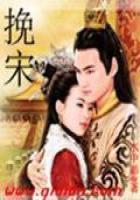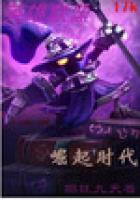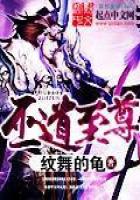Instances, indeed, are not wanting to substantiate the claim that communism, by unduly exalting our altruistic impulses, proceeds upon a false psychological basis.Yet if an instance is to be chosen, it would be hard to find one more suggestive than that afforded by the efforts of Robert Owen.The year 1824 saw the rise of Owen's little community of New Harmony, and the year of 1828 saw the community's final disruption.Individuals had appropriated to themselves the property designed for all; and even Owen, who had given to the enterprise his money and his life, was obliged to admit that men were not yet fitted for the communistic stage, and that the moment of transition from individualism to communism had not yet arrived.Men trained under the old system, with its eager rivalry, its selfish interests, could not quite yet enter into the spirit of self-renunciation that communism demands.And Owen, therefore, was led to put his trust in education as the great moulder of the minds of men.Through this agency, he hoped, the eager rivalry, the selfish interests, the sordid love of gain, might be lost in higher, purer, more disinterested ends; and, animated by that hope-the hope that in the fullness of time another New Harmony, free from contention and the disappointments of the old one, might serve to immortalize his name-animated by that hope, Owen passed the last thirty years of his life; and with that hope still before his eyes he died.
But years now have passed since Owen lived; the second New Harmony has not yet been seen; the so-called rational system of education has not yet transformed the impulses or the aims of men; and the communist of today, with a history of two thousand years of failure behind him, in the same pathetic confidence still looks for the realization of his dreams to the communism of the future.
And yet, granting that communism were practicable, granting that Owen's hopes had some prospect of fulfillment, the doctrine still embodies evils that must make it forever inexpedient.The readers of Mr.Matthew Arnold's works must have noticed the emphasis with which he dwells on the instinct of expansion as a factor in human progress.It is the refutation alike of communism and socialism that they thwart the instinct of expansion; that they substitute for individual energy the energy of the government; that they substitute for human personality the blind, mechanical power of the State.The one system, as the other, marks the end of individualism.The one system, as the other, would make each man the image of his neighbor.The one system, as the other, would hold back the progressive, and, by uniformity of reward, gain uniformity of type.
I can look forward to no blissful prospect for a race of men that, under the dominion of the State, at the cost of all freedom of action, at the cost, indeed, of their own true selves, shall enjoy, if one will, a fair abundance of the material blessings of life.Some Matthew Arnold of the future would inevitably say of them in phase like that applied to the Puritans of old: "They entered the prison of socialism and had the key turned upon their spirit there for hundreds of years." Into that prison of socialism, with broken enterprise and broken energy, as serfs under the mastery of the State, while human personality is preferred to unreasoning mechanism, mankind must hesitate to step.When they shall once have entered within it, when the key shall have been turned upon their spirit and have confined them in narrower straits than even Puritanism could have done, it will be left for them to find, in their blind obedience and passive submission, the recompense for the singleness of character, the foresight, and the energy, that they have left behind them.
In almost every phase of life, this doctrine of political altruists is equally impracticable and pernicious.In its social results, it involves the substitution of the community in the family's present position.In its political aspects, it involves the absolute dominion of the State over the actions and property of its subjects.Thus, though claiming to be an exaltation of the so-called natural rights of liberty and equality, it is in reality their emphatic debasement.It teaches that thoughtless docility is a recompense for stunted enterprise.It magnifies material good at the cost of every rational endowment.It inculcates a self-denial that must result in dwarfing the individual to a mere instrument in the hands of the State for the benefit of his fellows.No such organization of society-no organization that fails to take note of the fact that man must have scope for the exercise and development of his faculties-no such organization of society can ever reach a permanent success.
However beneficent its motives, the hypothesis with which it starts can never be realized.The aphorism of Emerson, "Churches have been built, not upon principles, but upon tropes," is as true in the field of politics as it is in the field of religion.
In a like figurative spirit, the followers of communism have reared their edifice; and, looking back upon the finished structure, seeking to discern the base on which it rests, the critic finds, not principles, but tropes.The builders have appealed to a future that has no warrant in the past; and fixing their gaze upon the distant dreamland, captivated by the vision there beheld, entranced by its ideal effulgence, their eyes were blinded to the real conditions of the human problem they had set before them.Their enemies have not been slow to note such weakness and mistake; and perhaps it may serve to clear up misconceptions, perhaps it may serve to lessen cant and open the way for fresh and vigorous thought, if we shall once convince ourselves that altruism cannot be the rule of life; that its logical result is the dwarfing of the individual man; and that not by the death of human personality can we hope to banish the evils of our day, and to realize the ideal of all existence, a nobler or purer life.
End















